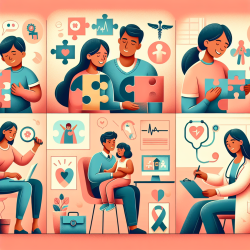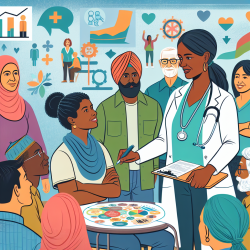Unlock the Secret to Enhancing Ethical Judgment in Medical Practice!
As a Special Education Director, I am constantly exploring ways to improve educational outcomes and foster professional development. Recently, I came across a fascinating study titled Medical Students’ Development of Ethical Judgment – Exploring the Learners’ Perspectives using a mixed methods approach. This study provides valuable insights into how medical students develop ethical judgment and offers practical implications for enhancing ethical training in medical education.
Understanding the Study
The study, conducted at Witten/Herdecke University in Germany, followed a cohort of medical students over several years to understand how their ethical judgment evolved. Students were presented with a clinical vignette involving a challenging ethical decision and asked to justify their choices. The study revealed that while students' ethical perspectives shifted over time, many still felt unprepared to make ethical judgments, highlighting the need for improved ethics education.
Key Findings
- Evolution of Ethical Perspectives: Initially, students tended to respect parental autonomy in medical decisions. However, by their fifth year, more students believed that doctors should not readily accept parental decisions, indicating a shift towards a more active role in ethical decision-making.
- Influence of Clinical Experience: Students increasingly relied on clinical experiences and clerkships to inform their ethical judgments, underscoring the importance of integrating ethics education with clinical practice.
- Perceived Preparedness: Despite changes in ethical perspectives, students consistently reported feeling inadequately prepared to make ethical judgments, suggesting a gap in the current ethics curriculum.
Implications for Practitioners
For practitioners and educators, this study offers several actionable insights:
- Integrate Ethics with Clinical Training: To enhance ethical judgment, ethics education should be more closely integrated with clinical training. This approach can help students apply ethical principles in real-world scenarios and develop confidence in their ethical decision-making abilities.
- Focus on Common Ethical Challenges: While extreme cases are valuable for illustrating ethical principles, everyday ethical dilemmas should also be emphasized. This focus can better prepare students for the ethical challenges they will encounter in practice.
- Create a Reflective Learning Environment: Encouraging students to reflect on their personal experiences and engage in open discussions about ethical issues can foster deeper understanding and personal growth.
Encouraging Further Research
This study highlights the need for ongoing research into effective methods for teaching ethics in medical education. Practitioners and educators are encouraged to explore innovative approaches and share their findings to continually improve ethics education.
To read the original research paper, please follow this link: Medical Students’ Development of Ethical Judgment – Exploring the Learners’ Perspectives using a mixed methods approach.










